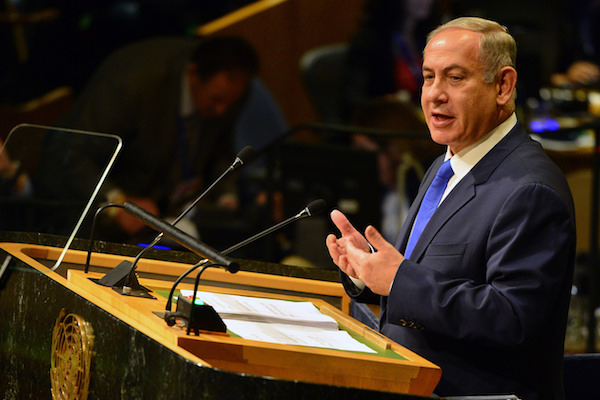No matter how many technological advancements or solutions to terrorism he offers, Netanyahu won’t be able to convince African states to love Israel before the occupation comes to an end.
By Ilan Baruch

Spokespersons for the Israeli government have recently decided to define Israel’s diplomatic ties with Africa as a strategic goal. During his visit to the continent in July, the Prime Minister’s Office told the media that it hopes the African Union, based in Addis Ababa, will renew Israel’s status as observer. Ethiopia’s prime minister even went so far as to say that “Israel is working hard in many countries in Africa. There is no reason to deny it the status of observer.”
That status was revoked in 2002, when the Organisation of African Unity became the African Union. The president of the union in those days, Muammar Qaddafi, pressured the organization to remove Israel, in solidarity with the Palestinian people at the height of the Second Intifada.
Only four African states — Liberia, Ethiopia, Egypt, and South Africa — were part of the United Nations when it adopted the Partition Plan for Palestine for the establishment of two independent states, Jewish and Arab, in November 1947 (at the time the UN was made up of 56 states alone). Today there are 194 states in the United Nations, including 56 African countries, of which 15 have no diplomatic ties with Israel. Following the announcement of the renewal of ties between Israel and Guinea, Director-General of the Ministry of Foreign Affairs Dore Gold said that ” The number of countries on the African continent that still haven’t re-established ties with Israel is steadily decreasing, and we’re hopeful that soon this number will not exist anymore.”
On the sidelines of last week’s UN General Assembly, Netanyahu held a closed meeting with 15 heads of state and top officials from various African states. According to a readout released by the Prime Minister’s Office, Netanyahu told the group that “Israel could be an amazing partner for their countries. He said that technology changes everything, including in communications, medicine, agriculture and education,” noting that Israel wants to share its technology with African countries.
For years Israel has been frustrated with the gap between its friendly, bilateral relations with African countries and their tendency to vote in favor of anti-Israel resolutions at the UN. Netanyahu opened up his speech at the General Assembly last week by stating that “Israel has a bright future at the UN.” In the past Netanyahu would blast the family of nations for its hypocrisy and ill treatment of the only democracy in the Middle East. But no more – all this is expected to change.

The United Nations, which began as an organization with moral force, turned into one with moral farce. And yet as he spoke to a half-empty plenary, Netanyahu claimed that “everything will change and a lot sooner than you think.” Why? Netanyahu has an answer: “The change will happen in this hall, because back home, your governments are rapidly changing their attitudes towards Israel. And sooner or later, that’s going to change the way you vote on Israel at the UN. More and more nations in Asia, in Africa, in Latin America, more and more nations see Israel as a potent partner… Governments are changing their attitudes towards Israel because they know that Israel can help them protect their peoples, can help them feed them, can help them better their lives… Slowly but surely, the days when UN ambassadors reflexively condemn Israel, those days are coming to an end.”
The rosy picture Netanyahu and Gold are trying to paint is far from the reality, both in Africa the world at large. The temptations Israel offers in the realms of advanced technology and the struggle against terrorism won’t do much. As long as it continues its shameful treatment toward the Palestinians by preventing their right to self-determination in a state alongside Israel, it will not find the love it so desperately desires.
South Africa’s President, Jacob Zuma, said in his speech to the General Assembly that the lack of progress vis-a-vis the Israeli-Palestinian conflict “causes us deep concern.” Zuma believes it is time for the UN to finish its historic role and help solve the conflict, which he sees as one of the continuing problems of “decolonization and occupation.”
The occupation, then, is what is stopping Israel from being embraced by Africa.
Ilan Baruch is the chairman of the Peace NGOs Forum and the former Ambassador of Israel to South Africa. This article first appeared in Hebrew on Local Call. Read it here.

